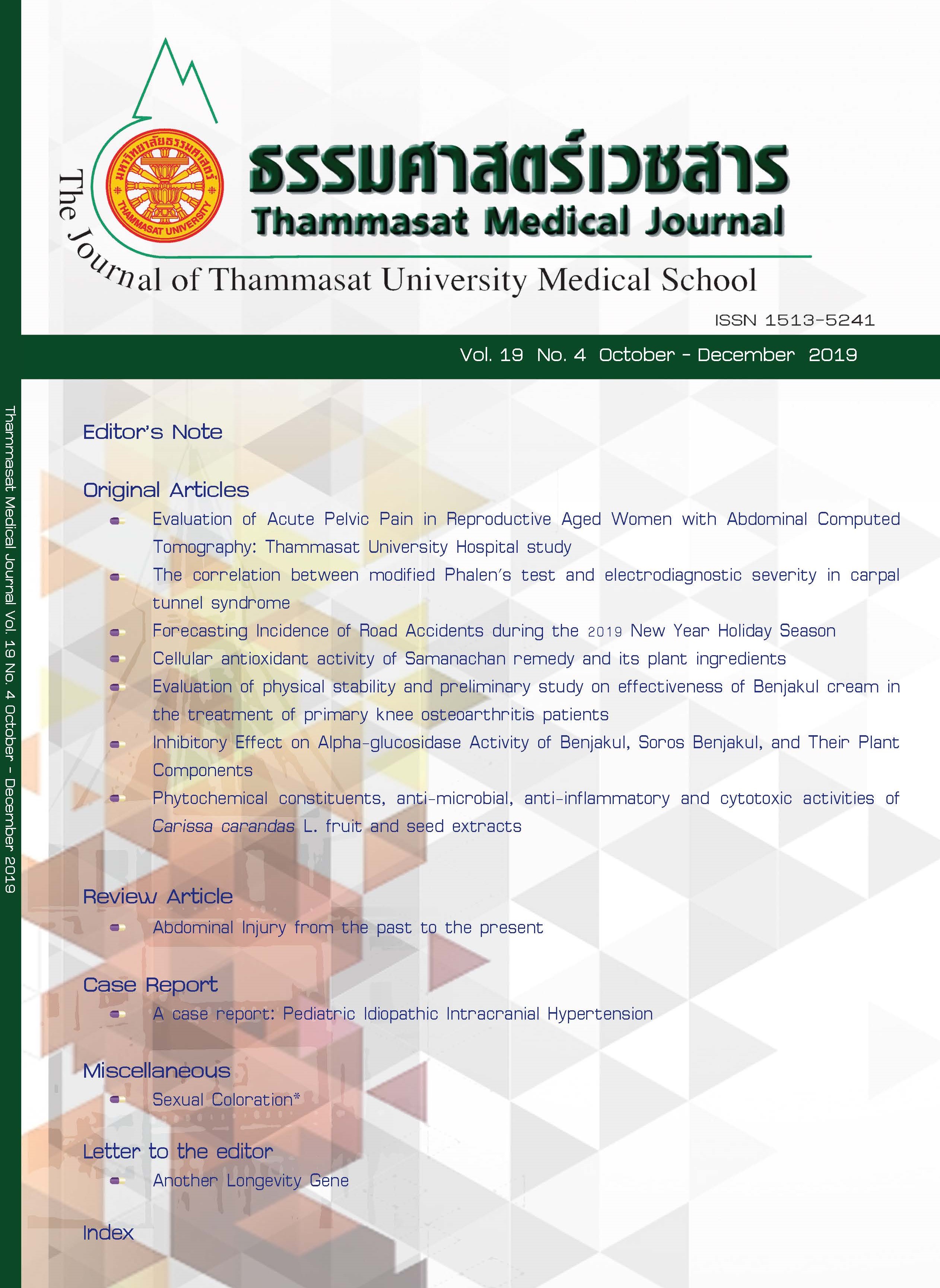Phytochemical constituents, anti-microbial, anti-inflammatory and cytotoxic activities of Carissa carandas L. fruit and seed extracts
Keywords:
Carissa carandas L., antibacterial activity, anti-inflammatory, human amelanotic melanoma cells (C32), cytotoxicityAbstract
Introduction: Karandas or Namdaeng (Carissa carandas L.) is a fruit traditionally used to treat skin and abdominal diseases. This research was to evaluate its antibacterial, anti-inflammatory and cytotoxic properties and its chemical composition to further understand its efficacy.
Methods: Different extracts of C. carandas L. fruit and seed were tested for their total phenolic (TPC) and total flavonoid (TFC) with Folin–Ciocalteu reagent and aluminium chloride colorimetric
method, respectively. Their antibacterial activity was tested against Staphylococcus aureus, Escherichia coli, Klebsiella pneumoniae, Pseudomonas aeruginosa and Bacillus subtilis. Their anti inflammatory activity was determined using nitric oxide (NO) inhibitory assay in LPS-stimulated RAW 264.7 macrophage cells. Cytotoxicity of the extracts was performed by SRB assay against human amelanotic melanoma cells (C32) skin cancer cell line and the normal human keratinocyte cell line (HaCaT).
Results: All extracts were found to contain TPC in the range of 8.60 - 60.05 mg GAE/g DW and TFC in the range of 15.18 - 42.27 mg QE/g DW. The 95% ethanolic extract of dried seed showed the
highest TFC at 186.62 mg QE/g DW. At the concentration of 100 μg/mL, the 95% ethanolic extract of dried unripe fruit showed the highest nitric oxide inhibition activity with the percent
inhibition of 46.66±2.93%. The ethanolic extract of fresh unripe fruit showed highest antibacterial activity (p<0.05). The seed extracts were cytotoxic to C32 and HaCaT cells, especially the 50%
ethanolic extract which showed cytotoxicity with IC50 <10 μg/mL.
Conclusion: The 95% ethanolic extract of dried C. carandas L. seed appeared to be a good source of antioxidants. All extracts showed low anti-inflammatory and antimicrobial activities but the
seed extracts showed good cytotoxic activity. The seed extract should be studied further for its role in the traditional medicine.



